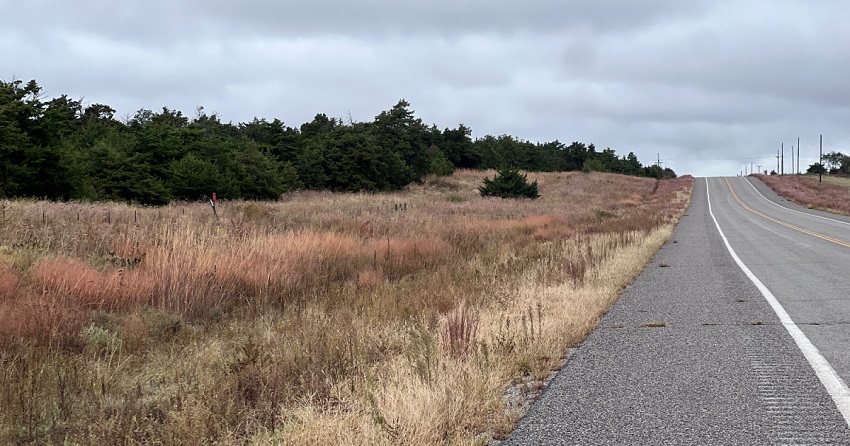Enid, OK – Oklahoma lawmakers are taking action against the spread of invasive Eastern Red Cedar trees, which have become a growing fire hazard and water resource threat across the state. With the risk of wildfires becoming more extreme, state representatives are now backing new legislation aimed at expanding efforts to eradicate these dangerous species.
Rep. Mike Dobrinski (R-Okeene) has introduced House Bill 2162, a measure designed to extend a successful pilot program targeting the removal of Eastern Red Cedars and other invasive woody species. The bill would create the Terry Peach Watershed Restoration Act, building on last year’s legislation, which launched a pilot program in the North Canadian Watershed. The new bill aims to extend the initiative statewide, focusing on critical watersheds across Oklahoma.
“The primary goal is to improve water flow, especially in areas suffering from drought, while also addressing the wildfire danger posed by these trees,” Rep. Dobrinski said. The Eastern Red Cedar, known for its oils and resins, can become highly combustible in dry conditions, leading to a dangerous fire risk. These trees are particularly problematic in western Oklahoma, where water conservation is a pressing issue.
The Oklahoma Conservation Commission, which runs the pilot program, has seen notable success in reducing fire risks and promoting water sustainability in regions such as Woodward and Boiling Springs. The Commission has also provided training to rural fire departments and burn associations, equipping them with the tools and knowledge needed to combat invasive species.
“We’ve created safety zones around key areas in Northwestern Oklahoma, helping to protect both property and infrastructure,” said Trey Lam, executive director of the Oklahoma Conservation Commission. “We’ve also focused on educating the public about eradication techniques and maintaining cleared areas.”
House Bill 2162 seeks to eliminate the pilot status of the current program, allowing it to expand into a statewide initiative. The estimated cost of expanding the program is $10 million, which would need to be approved through the appropriations process. The bill has already passed the House with overwhelming support, receiving a vote of 88 to 4, and is now set to move to the Senate for consideration.
If passed, the bill would create a revolving fund to support the statewide initiative, which experts say is critical for addressing the escalating problem. According to Lam, the area infested by invasive woody species like Eastern Red Cedar is growing at an alarming rate of 7% annually, equating to about 700,000 acres per year.
“We need immediate action to curb this issue. Without further funding and support, the situation will only worsen,” Lam warned.
In addition to House Bill 2162, other legislative efforts are underway to address invasive species across Oklahoma. Senate Bill 940, introduced by Sen. Darcy Jech (R-Kingfisher), calls for state agencies to report the presence of invasive species and their impact on the state’s ecosystems.
“The spread of invasive species is having a significant effect on Oklahoma’s lands,” said Sen. Jech. “These species control thousands of acres, and we must work together to manage their impact.”
While two versions of the bill are currently being debated, Rep. Dobrinski remains optimistic that the state will find the funding necessary to continue these efforts and ultimately protect Oklahoma’s environment and residents from the dangers posed by invasive trees and other species.
With wildfire season approaching and the need for water conservation growing more urgent, lawmakers are pushing to ensure that these measures receive the funding and support they need to make a lasting impact across the state.

